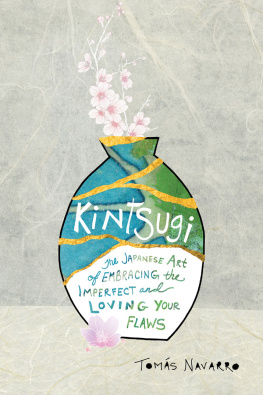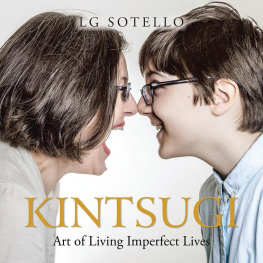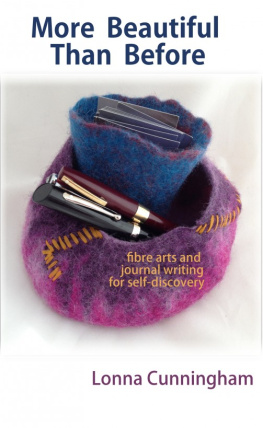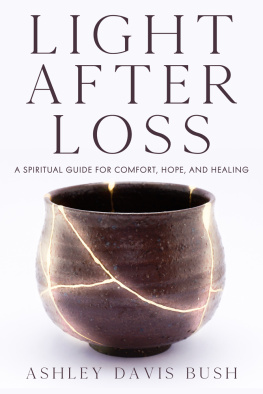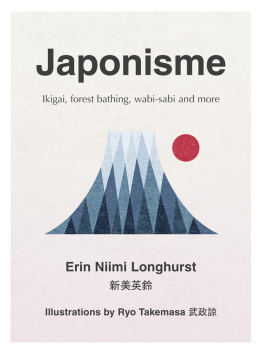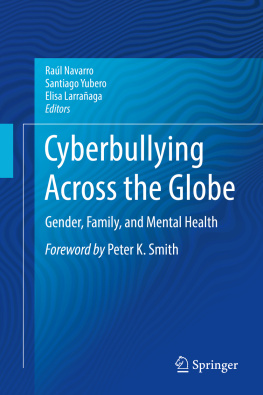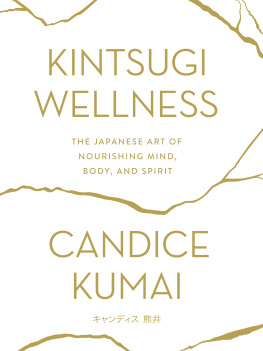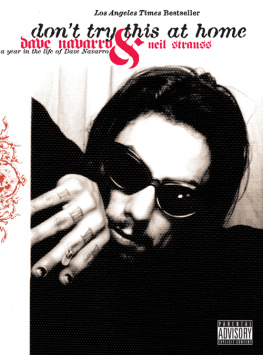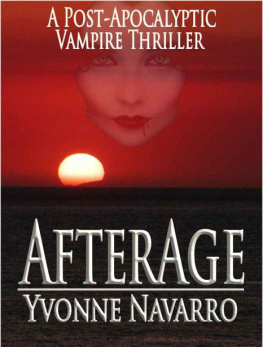Acknowledgments
Our life is the way it is thanks to each and every one of the interactions we have, interactions that together configure my universe, my message, and my day-to-day life. There are many people who have made it possible for this book to be in your hands. I would like not to forget anyone or to establish a ranking of contributions (you know how much I dislike competition), but, in any case, I am clear about where I should start in my acknowledgments.
You, dear reader, are a part of my life. I want to thank you for deciding that in Kintsugi you could find the help you needed to heal, for entrusting such a delicate task to me, and for keeping me in mind when things were hardest. My respect, my acknowledgment, and my gratitude go out to you.
Thank you also to each and every one of the readers of my first book. Emotional Strength was the result of a timid dream that presented itself to the world discreetly and with the humility of someone who does not know what awaits him. You, dear readers, have sheltered my dream, you have given it safety, and you have made it grow, consolidating it and valuing it. Thank you so much.
What began as a daring journey is now a consolidated strategy with a firm commitment for the future thanks to each and every one of the people who work to form an excellent team. Thank you Anna, Laia, Eugenia, Elisabet, Octavia, and Marcela. We imagine that behind great achievements there is always a large team of people, but in this case, it is surprising to see the kinds of things that can be achieved by a small team made up of great people.
Thank you to all the people who have shared your experiences with me, to my clients and friends. La Cerdanya is a zealous guardian of a thousand stories that, digested and camouflaged, form the knowledge I collect and share here. Without you, without your confidences, without your stories, my readers would feel more alone, more misunderstood, and more isolated. Your valuable contributions allow me to illustrate that our experiences are often more common than we think, that we are not alone, and that we are not abnormal.
I would like to thank all the people I have met and who have decided they wanted to help make my knowledge and experience reach more people. Thanks to Quim, Jorge, and Mara at Televisin Espaola; thank you, Sal, Albert, Carme and Arnau, Marta and David, Espartac and Xavi, Susanna and Elvira. Thank you to each and every one of the journalists who have put your transcripts, microphones, or cameras at the service of disseminating psychology, with the purpose of improving the emotional well-being of society.
Finally, I wish to express my deepest gratitude to one person who has offered me their knowledge as a ceramicist to be able to give shape to my stories, someone I have seen throw clay and turn it into a delicate Rau piece, a person capable of creating art with their hands no matter what they are making, whether it is food, ceramics, or crochet. Dearest one, accept my humble thanks, which are in tune with your carefully trodden steps through this life, trying to make as little noise as possible. Thanks to you and your caring and intelligent partner, bringer of big smiles, brilliant host, fine and wonderful conversationalist, and spectacularly entertaining narrator of news. My life is better thanks to your company.
And of course, I have nothing but words of thanks to the people who are closest to me because they are the ones who have inspired my daily life, who have offered me their courage when mine failed me, and who have always made the laborious task of writing a book as easy as they could for me. Nria, my partner, the person with whom every path turns into an adventure, and Alicia, a fairy spirit from the northern mountains who can create magic just by smiling. I have a lot to learn from Nria and Alicia. They are both extraordinary examples of self-improvement, struggle, and good humor applied to daily life. They know it already, but I would like to be like Nria and, when I grow up, I would like to be like Alicia. They already know that if my life is wonderful, it is because I have two wonderful people by my side.
About the Author
Toms Navarro is a psychologist who loves people and what they feel, think, and do. He is the founder of a consultancy and center of emotional well-being. He currently splits his time between technical writing, training, consulting, conferences, advisory processes, and personal and professional coaching. He lives in Gerona and Barcelona.
Mottainai, yelled Chojiro. Never waste something that is valuable!

Mottainai: The Art of Giving Yourself a New Opportunity
We are reaching the end of our conversation. I admit that I have tried to imagine you, to have a conversation with you for many hoursall of the hours I have been writing, designing, and thinking about the contents of Kintsugi. I have taken you to the highest peaks, the greenest pastures, and gently pounding waterfalls; you have come along with me among the marmots and chamois, in the sun and shade, in the forest and by the lake, all the places where on my iPad I have been writing the book that is coming to its conclusion.
I have imagined you as broken, but I have also imagined you repairing yourself; fighting to be able to smile again; to take that step forward; to once again live your life, which is the most valuable possession we have, with fullness and with intensity. Life, our life. Your life. Dont give your life away to anyone. Share it if you like, but dont allow anyone to steal it from you, and whatever you do, dont stop living. You only have one life, and you have the obligation to live it intensely. Perhaps the time has come to evaluate whether you are living your life, the life of another person, or the life that others want you to live.
Dont waste something as valuable as your experience and your life. You might have suffered, but you have also rebuilt yourself. If you have learned from what you have been through, you possess the most valuable piece of knowledge: experience. That experience has allowed you to grow and become stronger. Now you are better prepared to live, you have more resources, you know yourself better, and you know what you are capable of. So dont waste that pearl that is knowledge and experience, and, far from putting it out of your mind, keep it at the forefront of your thoughts. Dont waste your experience, the thing that demonstrates your emotional strength.
I invite you to join the philosophy of mottainai! All right, I must admit that I havent found any references to a mottainai philosophy as such, and maybe its presumptuous for me to create a new philosophical concept, but in any case allow me to use this Japanese concept to illustrate the attitude you should have and to close this dialogue of pages, emotions, confessions, resources, and anecdotes.
Mottainai refers to the concept of the pain and sorrow we feel when we lose a resource (material or not) of great value, such as a teaching, time, experience, dream, emotion, idea, or even a thought. On the contrary, mottainai also has a positive sense, which is the motivation to make the most of something, give a second life to something, or avoid wasting what is valuable whether it is material or not. I admit Im not actually sure if it does have this sense or if its just me giving it to it. In any case, if you are able to see that you are losing something valuable, you will be able to avoid that loss if you do something, or at the least you will take advantage of the lesson, experience, or event.
Now you know what the term mottainai means, but its not enough just to know it. Its not knowledge that helps you live the life you desire but the application of that knowledge. Sometimes we accumulate informationwe read and become informedbut we dont take action. And whats more, we ignore the reason for that inaction. Its as if we were afraid to have a new opportunity, to start a new life, or to give ourselves a new life. Well, you are wrong! You have a right to give yourself a new chance, to start over. You wont be starting from zero; youll be starting all the wiser for what you have learned. Life is a series of ups and downs. Youll fall, but thats all right. Youll get up again. Youll fall again, many more times, but that doesnt matter. What truly matters is that you get up one more time.
Next page
